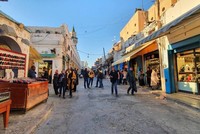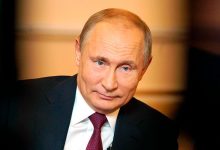
A far-right political party in Belgium’s Ghent province demanded that banners in Turkish and Arabic, which were prepared to inform locals about carbon dioxide emissions, be taken down.
On Jan. 1, Ghent enacted a low emission zone policy to improve the air quality in the province. After Feb. 1, owners of diesel and gasoline-powered vehicles will have to pay a cash fee.
Since the province is home to a large population of Turkish and Arabic residents, the municipality of Ghent prepared banners in the languages of Turkish and Arabic to reach these groups and inform them about this practice.
However, according to BBC Turkish, the banners that were put up in the city center as well as in the neighborhoods where the Turkish and Arabic populations live elicited backlash from a far-right political party.
The Vlaams Belang (Flemish Interest) party claimed that these banners were against the language regulations of the province and that the mayor violated the law by putting these banners all over the city. The far-right party claimed that no other language than the official language, Flemish, can be used in any advertisement campaigns of the municipality.
However, the council of the municipality denied the claims and said that there was nothing in the campaign that would contradict any regulations of the province.
Vlaams Belang (VB) is a reconfigured version of Vlaams Blok, which was dissolved after a trial in 2004 condemned the party for racism. The party polled second place in the Flemish region with 18.6% of the overall vote, increasing its number of members of parliament in the Chamber of Representatives to 18. The VB’s main goal is to establish an independent Flemish republic. The party seeks a peaceful secession of Flanders from Belgium.
Today, anti-Muslim sentiments in Europe manifest through individual attitudes and behaviors as well as the policies and practices of organizations and institutions. In recent years, anti-Muslim sentiments have been fueled by public anxiety over immigration and the integration of Muslim minorities into majority cultures in Europe.







